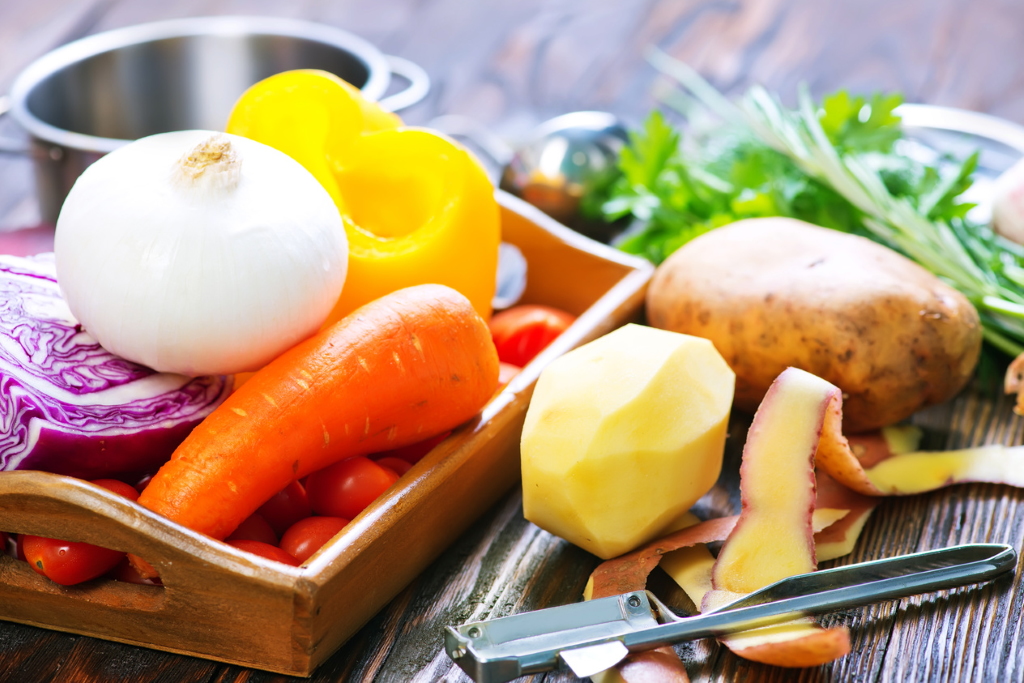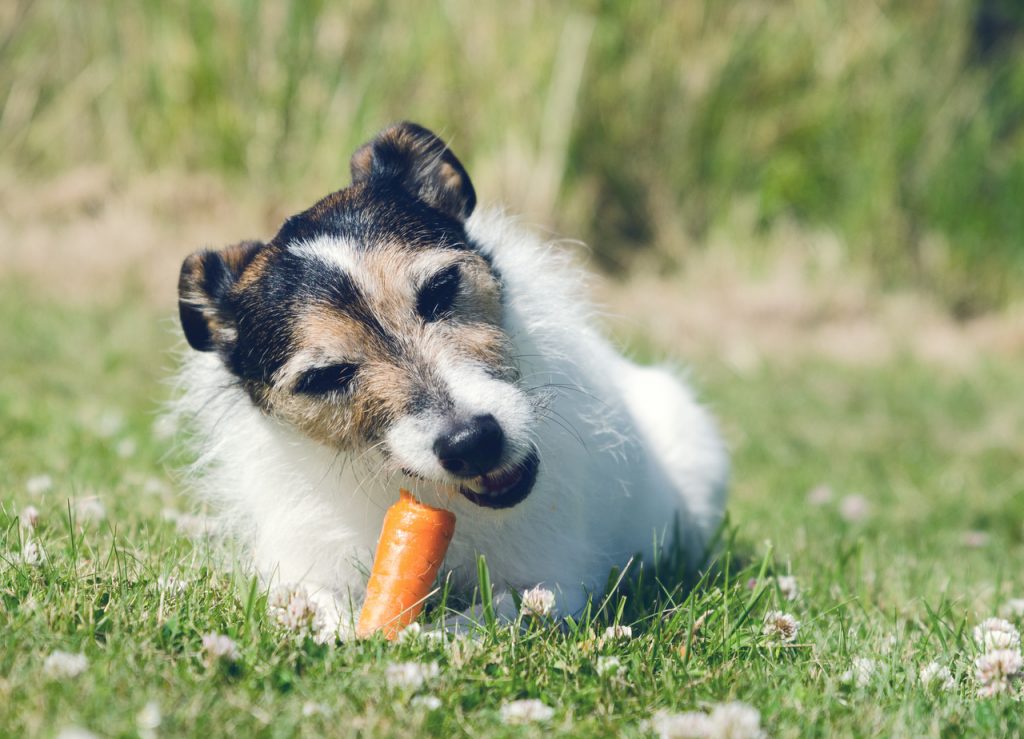We all try to achieve a long and healthy life for our pets, and part of that is giving them the best possible food to fulfill their nutritional needs. In this article, we look at some of the vegetable ingredients found in premium pet foods and how they form an important part of a balanced pet diet.

Vegetables are an important source of fibre, minerals and vitamins that keep skin and coat healthy, strengthen bones and teeth, and provide energy. Vitamins also contribute to the body’s ability to resist disease. Pet food manufacturers are increasingly aware of the importance of vegetable ingredients in a balanced pet food.
Which vitamins are important and why?
Vitamin A is important for sight, cell division and the immune system. Vitamin A is required to generate skin cells and cells in the trachea, hair, gums and lung tissue. It contributes to a properly functioning immune system and has an important function in the growth of young animals.
Dogs are able to produce Vitamin A from consuming foods high in carotenoids, such as carrots, spinach and pumpkin. Cats are unable to convert carotenoids into Vitamin A.
Vitamin E is an important antioxidant that plays a role in the regulation of cellular metabolism, and has a function in the generation of red blood cells and in the maintenance of muscle and other tissues. Vitamin E is a term used for a number of compounds that naturally occur in food: the tocopherols such as alpha, beta, gamma and delta tocopherols. Vitamin E is found in leafy vegetables, pumpkin and carrots.
Vitamin K is essential for good blood clotting and is required for maintaining the strength of bones. Bacteria that naturally occur in an animal’s large intestine are able to generate Vitamin K. Vitamin K is found in green leafy vegetables.

Vitamin B is a water-soluble Vitamin and there are different types of Vitamin B with specific benefits:
Vitamin B1 (Thiamine) is necessary for dogs and cats to convert carbohydrates into energy. Cats require more thiamine than dogs. Vitamin B1 is also necessary for the proper functioning of the heart muscle, nervous system and brain. Thiamine can only be stored in limited quantities and any excess is excreted in urine.
Vitamin B2 (riboflavin) is vital to the energy system of cats and dogs. It plays an important role in releasing energy from carbohydrates, protein and fat. Vitamin B2 is also required for the generation of red blood cells and anti-bodies. As with Vitamin B1, excess Vitamin B2 is excreted via urine.
Vitamin B3 (niacin) consist of two types of niacin, nicotinamide and nicotinic acid. To a limited extent, dogs are able to generate niacin from the amino acid tryptophan. Cats are unable to do this. Vitamin B3 is necessary to supply the body with energy and plays an important role in the production of fatty acids in the body. Meat and fish are rich in Vitamin B3.
Vitamin B6 in all forms, is absorbed by the intestinal cells and converted into pyridoxal. Vitamin B6 is involved in more than a hundred enzymatic reactions in the body, mainly related to energy production and the metabolism of fats and proteins (building amino acids). It also regulates the functioning of certain hormones and is vital to growth, blood production and the proper functioning of the immune and nervous systems.
Vitamin B11 (folic acid) contains folate that is necessary for the growth and functioning of the body and the generation of white and red blood cells. Folic acid is also important for the early development of the unborn puppy / kitten.
Different types of Vitamin B are found in green vegetables and pumpkin.
Vitamin C (asorbic acid) is an antioxidant and is necessary for a healthy immune system and for the construction of connective tissue (collagen). Vitamin C is important for the absorption of iron. Unlike humans, cats and dogs are able to generate sufficient Vitamin C from glucose. Vitamin C is found in green vegetables and pumpkin.
So should dogs and cats eat vegetables?
Yes, absolutely. Veggies are an important part of any dog food formulation, and can be included (in small amounts) in cat foods for an added nutrient boost. As with the meat or fish content, manufacturers of super and ultra premium pet foods (a category into which ALL MyPetZone’s food options fall) try to use vegetable ingredients that are sustainably sourced and produced.
